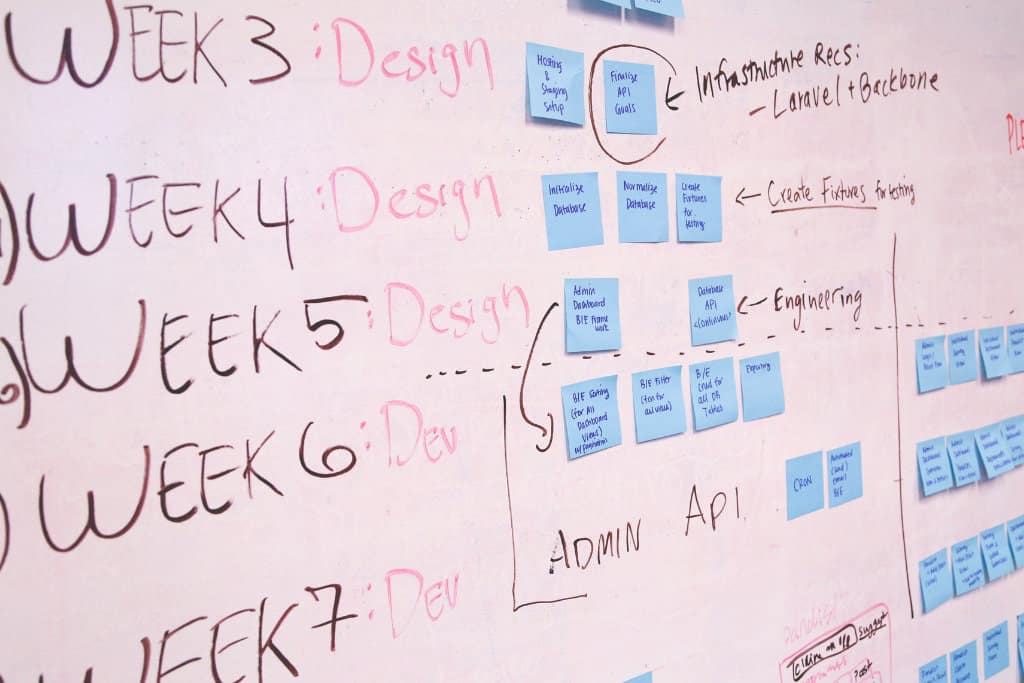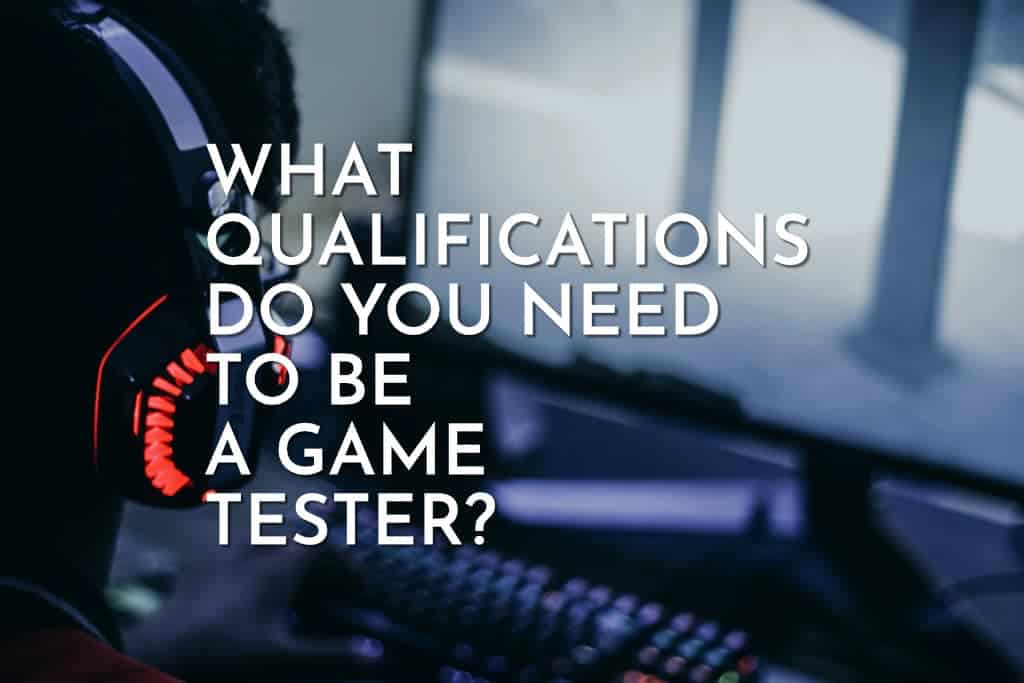We’ve come a long way since the early days of Pong when paddling a ball across the TV screen was considered enjoyable. Now we have created extremely advanced, visually impressive, highly detailed, and absolutely breathtaking worlds of fantasy that captivate us with incredible storytelling and realistic character designs. But this increased complexity brings with it new challenges. Your game is more likely to have bugs, simply because there are more points of failure. And that’s where game testers come in, people who play sections of the game repeatedly for hours to find and report problems so the developers can fix them before release.
Ok, so what qualifications do you need to be a game tester? You need to have keen observation skills, and the desire to understand how a game works on a design level. Knowledge of coding isn’t required, although game companies will appreciate it if you have a good sense of logic and reason. Problem-solving, patience, communication, and tolerance for repetitive tasks are all part of the equation. You certainly can get into this career without a college degree. But a study conducted by Game Developer Magazine found that game testers with a GED or high school diploma make more money on average compared to those who have a formal degree. Last but not least, a passion for video games is necessary.
Remember that it isn’t all about technical skills, in fact, you don’t need too many of those. Any simple high school diploma or bachelor’s degree will do, but the psychological side of things is what’s most important in an entry-level job like this. The ability to perform mundane, repetitive tasks for weeks and months while also having a keen enough eye to notice glitches that the average gamer may not find. Being good at games is also desirable, although nobody is asking you to play like a professional. A lot of people use game testing as a stepping stone to get other, better-paying jobs within the industry. It is an opportunity to get to know the game studios from the inside and work in collaboration with game designers.
Specific Skills You’ll Need To Become a Game Tester

As a game tester, you’ll probably start out with entry-level jobs that pay close to minimum wage. Or maybe you’ll be hired as a contractor, and released after the testing phase ends no matter how well you perform. Either way, experience in game QA will help you land a more stable job at a large studio where you might get to work as an in-house tester. And from there, you might even climb your way up the corporate ladder by getting into marketing, game design, art, etc. if you have the necessary degrees. Game testing is a great way to enter the gaming industry if you aren’t a programming guru or art expert. That said, we have a list of skills you should start working on right now.
First, make sure that you’re skilled in multiple types of video games and can beat them with various styles of gameplay in a reasonably short period of time. For example, gamers who practice the art of “speedrunning” are likely to figure out glitches and exploits within a game much faster than regular players. Speedrunners utilize these exploits to complete the game in a ridiculously short amount of time. They skip entire quests and storylines or even parts of a level to get to the end faster. And you should also be willing to try out unique and often weird playstyles, like playing through the whole game with just one type of weapon. You’ll see examples of this on Youtube, just look for gaming channels who post videos like “I beat Halo Reach without walking” or “I beat Outer Worlds with just a pistol”.
Second, you’ll have to be technically proficient with PC hardware. Knowing how to build your own gaming PC is a huge advantage since that implies you have at least a basic understanding of things like GPUs, performance benchmarking, graphics APIs, etc. You should also know file formats, and be capable of writing small batch files or scripts to automate mundane tasks. The ability to manipulate and modify .ini or config files will come in handy. And other basic computer skills like capturing a screenshot, recording a video, editing a graphic, etc. will be required from time to time. Some companies even put requirements like “proficiency in Microsoft Word, Excel, PowerPoint” within their QA tester ads. You should also be able to type faster than the average person (40+ WPM) and have technical writing skills.
Game testers are often hired by the dozens to work in teams under the leadership of senior testers, and some of you will be tasked with testing the localization for a game. This basically means that the job will go to testers who know multiple languages, over some tester who only knows English. This isn’t a necessity, rather a nice “extra” skill to give you an edge over other applicants.
Personality Traits That Will Help You Rise To The Top

These are more like “soft-skills” and will help the HR team make the decision on whether they should hire you or not. Technical proficiency is good to have, but effective communication skills and the ability to work in a team is just as important. Personality traits such as the ability to perform under pressure, multitasking, and focus will be valued significantly. A willingness to work without any guarantee of long term employment is also nice to have since you’ll rarely receive any benefits or a salary worth talking about. And this should be obvious, but you’ll be required to test games that you personally don’t like. Maybe you’re more of an RTS person, well guess what- your first 2 years might be at some company developing an FPS. And it won’t be some realistic shooter like ARMA, instead, it is likely a Fortnite copy and geared towards 10-year-old kids. Don’t want to test such a game? Well, there are about 1000 other people behind you in the queue who would love to get any game testing job, and they will take that opportunity if you don’t.
Artistic, creative types have a higher chance of making it as a game tester. You have to be capable of articulating your views and opinions in a clear, concise manner. Good speaking skills and an expressive personality will land you a game testing job immediately, provided you have the necessary technical skills too. Being inquisitive and nonconforming means you are going take routes others won’t, in order to search for the most difficult to reproduce bugs or glitches.
Do You Have To Be Skilled At Games?

Someone who’s good at games will have a higher chance of being selected. But you don’t have to be on the level of Shroud 360 no scoping scrubs in shooters. Instead, you need to attack the game from as many dimensions as possible. A deep understanding of various game genres will come in handy, since you will test all aspects of gameplay such as sound, graphics, UI, environment, etc. Proficiency in English is also desirable since you’ll have to look out for grammatical or spelling errors in the text. Attention to detail is of utmost importance, as you’ll be tasked with finding out glitches that casual gamers won’t even notice. There are some additional qualifications that may help you secure a game testing job at big companies such as EA or Ubisoft.
More Work, Less Play | The Reality Of Game Testing

Many of you have probably thought about playing games for money at least once at some point in your life. You hopped on the computer and did a quick Google search on how to make money from games. Turns out there are various ways- game programming, testing games, becoming a game designer, etc. Playing games for money sounds like a lot of fun, but don’t let the job description fool you. No tester is paid to have fun. If you don’t meet deadlines, aren’t okay with working overtime for meager salaries, and lack problem-solving skills, you’re out. This is as real a job like any other in the game development industry, and you’ll need certain qualifications for it. No, you don’t have to graduate top of your class from an Ivy League school. But basic IT and analytical skills are a must-have, in combination with team skills and communication.
Some day you’ll become interested in the game testing, and end up on one of those scam sites that ask for your credit card info. They tell you its fun, you get to play games from the comfort of your couch on your PlayStation or Xbox. You’ll see photos of kids with their mouths wide open in excitement as they play some awesome new FPS on their giant 60 inch TV in the living room. And the money just keeps rolling into your bank account, while you get to play the latest games from various genres while your friends will get these games a year or two later. You probably think you will be able to brag about it at the next party too, in front of your less fortunate friends.
But, like Thanos said- “Reality is often disappointing”. Instead of working from your home, you’ll be required to work at an office (probably for some company that outsources QA). Then there is the chicken or egg dilemma- game developers want experienced testers, but you can’t have experience unless you get a job. Sometimes you’ll be asked if you have a college degree and coding skills. And while you do get to play games before anyone else, you aren’t exactly being paid to have fun. Game testing is best described as “running into a wall several times till it breaks so that other people don’t break the wall”. Imagine your favorite movie. Now take your favorite 1-minute clip from the movie, and watch it in a loop for 10 hours a day. Keep repeating for weeks and months. Very quickly, you’ll find out that the movie isn’t very entertaining anymore. And in-game testing, you will sometimes play an alpha version with unfinished graphics and missing features. Sometimes there won’t even be characters, just grey cubes since the game is fresh out of the prototype phase. And you can’t talk about the game with your friends, because you signed an NDA.
The Role Of A Game Tester Within The Development Pipeline

Now that you know what the requirements are for becoming a game tester, let’s shed some light on what you’ll be doing once you become one. As a game tester, you’re part of the QA (quality assurance) team. Not only are you tasked with reporting bugs and glitches, but you also provide feedback on the playability of a game. And in modern game development, you will also be asked if the game is fun and if not, what can be done to improve the gameplay. Your objectives are to test different levels and builds for the same game, 8+ hours a day. It’ll be like this- load into the menu 100 times, fight the same boss with different armor and load-outs for an entire day, interact with every single NPC, etc. Forty hour work weeks are pretty common, and you’ll often work overtime at the start for minimum wage. The developer will see if your results mirror the level of performance they originally aimed for, and you’ll also play other games of the same genre to make comparisons.
Another thing you might end up doing is testing the game for copyrighted material such as logos, music, etc. You will even read the instruction manuals and packaging text to detect incorrect info or spelling errors. Doesn’t sound all that exciting? Well, we never said it would be fun. You’re doing the work that nobody wants to do because it’s tedious and plain boring. But thanks to your sacrifice, millions of gamers will have a great time playing the finished product. Full-time in-house testers can make around $50,000 per year on average, according to the Bureau of Labor Statistics. But most of you reading this article will start out as a part-time or contractor so don’t expect that kind of money in entry-level jobs. And climbing to the top will require certain certifications and degrees, more on that soon.
What Kind Of Testing Will You Do?
Functionality testing: This involves any errors within the game code that can negatively impact the user experience. Crashes, freezes, progression blockage, etc. Testers will thoroughly play through the entire map or level to detect gameplay issues or graphics problems, as well as audio-visual issues.
Installation testing: Testers will install the game on multiple platforms to ensure a seamless experience on different hardware configurations. The game has to install, load, and run on mainstream systems used by a majority of players. Sometimes, testers will insert the disk several times into a console to see when it starts showing read errors. This is less relevant in today’s world of digitally distributed content, but you might have to do such tests.
Feature testing: Here the testers will see if the game features are working as intended. Example: If your shooter game has automatically replenishing health, does it interact weirdly with certain enemy weapons? Or if you are creating an action game with slow motion/ time-bending mechanics, how do those features work under different circumstances?
User interface (UI) testing: You’ll be provided a checklist of things to inspect in the UI. HUD elements, menu options, audio and visual cues, etc. are all part of the user interface. Are there any glitches in certain graphics? Do all the UI elements load and transition properly?
Performance testing: Say the framerate target on a particular home console is 60FPS, your job as a tester is to benchmark the game for any unusual dips or freezes. How often does the game fall below its target framerate, which levels are the most demanding and why, etc. You will carry out the most common tasks a player is going to perform on a frequent basis and report your findings to the developer.
Multiplayer testing: As the name indicates, you’ll test the multiplayer aspect of a game to weed out glitches and exploits in both LAN and online modes.
Compliance testing: First-party licensors for console platforms have strict technical requirements for any game titles that are licensed for their platforms. Things like the formatting of error messages, handling of memory card data, handling of legally trademarked and copyrighted material, etc. are all the responsibility of game testers. Any violation during submission of the game for license approval will result in delayed launches and developers will end up spending extra money on further testing for resubmission.
Soak testing: The game is left running for extended time periods, in various modes- idle, paused, at the title screen, etc. Most of the soak testing is automated and managed by lead testers since you can’t expect an actual person to sit down and click the mouse in the start menu for 24hrs a day. Soak testing helps developers identify memory leaks or rounding errors which only show themselves over time.
Regression testing: Often, you’ll be asked to make sure that bugs you previously reported to the developer have been fixed.
Conclusion
If you have an intense passion for gaming and are willing to work hard, game testing is a nice job for you. It is the dream job of many kids, but the reality is that this is a stressful, repetitive, and mentally draining task. An entry-level game tester doesn’t have many prospects in terms of advancing within the industry, but as you rack up experience you might be promoted to a senior tester and work in-house for larger studios. Some qualifications like a bachelor’s degree in computer science or other IT related fields will be necessary if you wish to get into the world of game design. A select few game testers with a thirst for learning manage to break out of this painstaking job and become programmers or graphic designers. If you want to become a game tester, start building your resume. Go online, look up job listings from various game companies. What requirements do they expect from a game tester? Start learning new skills that can help you climb upwards on the corporate ladder. Some day you might become a quality assurance director or UI programmer.

